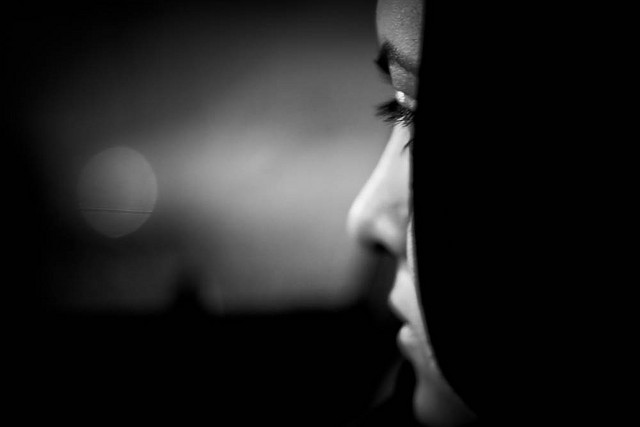Childhood Domestic Violence Can Make Us Feel Alone, Even When We’re Surrounded
Life after a childhood of domestic violence can feel very lonely. Such children learn early on that it can be safer to isolate themselves; they also develop the belief that they cannot trust others, and so they keep everyone at a distance.
The good news, however, is that loneliness and purposeful isolation are simply symptoms of the lie that you’re safer if you remain alone. Like all lies learned during a painful past, you can unlearn this lie, and you can once again embrace close, fulfilling relationships. In this post, let’s begin to explore the lie of aloneness and how you can tell if you’ve been living this lie in your life.
Growing Up With Childhood Domestic Violence is All Too Common
Growing up with domestic violence is not a rare occurrence. Domestic violence affects 1 billion people worldwide. UNICEF calls it one of the most pervasive human-rights violations in the world today. Most of the individuals who suffer childhood domestic violence have grown up feeling utterly alone and isolated, separate from the rest of the world.
For example, your life may be bustling with people, relationships, and hobbies, but you probably feel somehow disconnected from them. If others try to get close to you, you never actually let anyone in. Whether you prefer solitude or you believe that no matter how hard you try, you end up alone, the lie is the same: You cannot trust another person not to hurt you.
We Can Be Surrounded By Loved Ones and Still Be Isolated and Alone
Those who suffer the lie that they must isolate themselves are sometimes the people who seem most popular, loved, and socially active. Or they could be the quiet loners who attempt to remain unnoticed. In both cases, such individuals feel a deep sense of distrust toward others. Therein lies the path to healing the lie of aloneness.
As you begin to embrace the belief that others are worthy of trust and that you are worthy of knowing whom you can trust, you can begin to dismantle the lie of isolation.
Are you ready to consider embracing trust, both of yourself and of others?


I am married, have children and still feel alone…is that possible when I should be Happy with the family I have? I grew up watching my mother get beat by her father who would place blame on me and my younger sibling for beating her. As I gotten older it was towards me as well as my mother, there was physical and mental abuse along with sexual abuse.